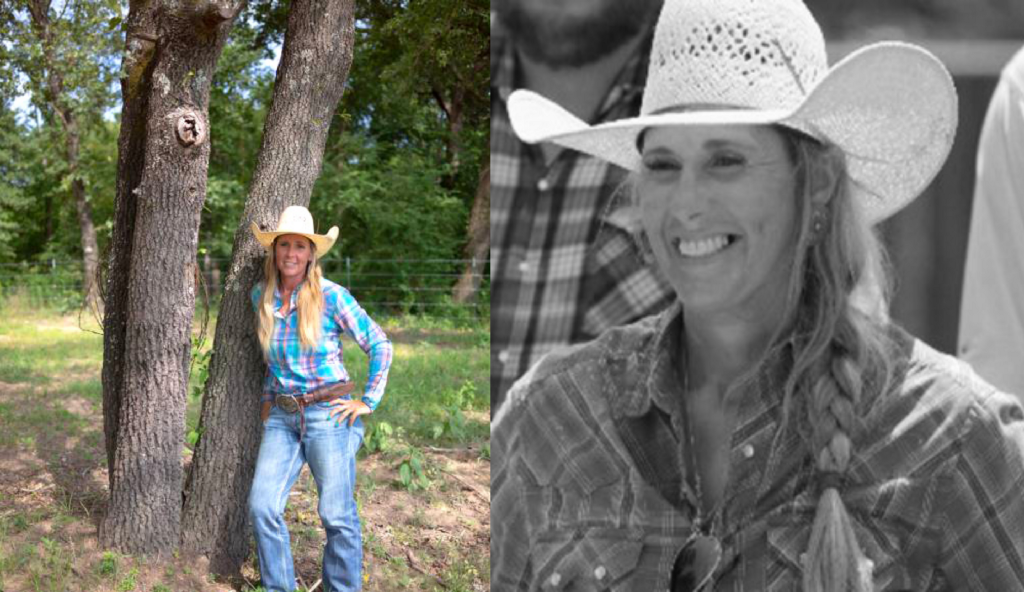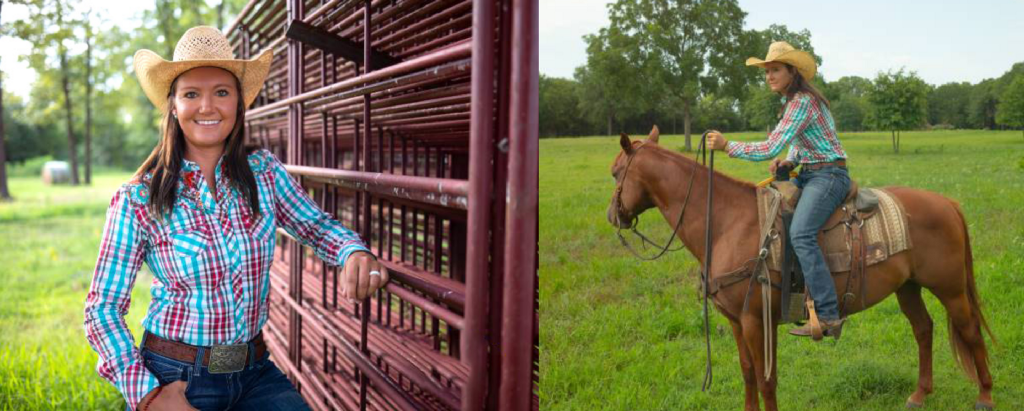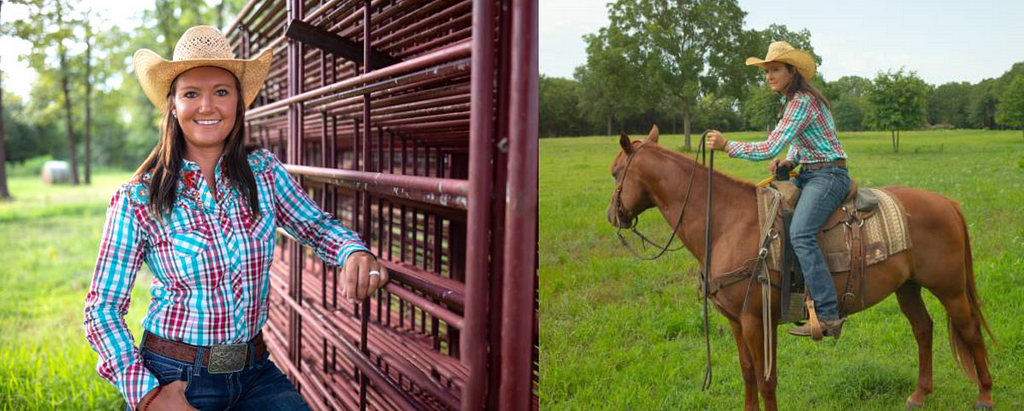Female Disruptors: Jennifer Hudgins of Ultimate Cowboy Showdown, On The Three Things You Need To Shake Up Your Industry
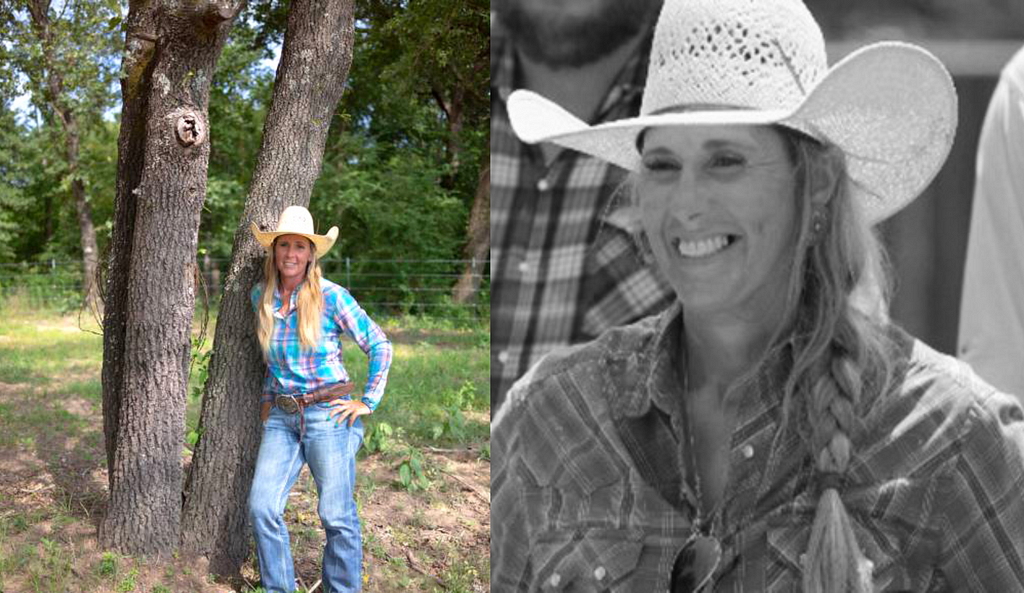
I have received a lot of great advice over the years, so it’s hard to just pick three. However, I would say the number one on my list came from both of my parents. They taught me to “ride a good horse and always give it the best of care.” Without a horse, you have no cowboy. I have been privileged in my life to own, train, and ride some exceptional horses, and those horses make my job easier and bring joy to my life.
As a part of our series about women who are shaking things up in their industry, I had the pleasure of interviewing Jennifer Hudgins.
As the ranch manager at her family’s Oklahoma cattle operation, and a contestant on season 2 of “Ultimate Cowboy Showdown,” Jennifer Hudgins knows how she likes things done and expects only the best from her staff. Working side-by-side with her father — an old school cowboy, she’s thankful for all the insight he’s bestowed upon her. Jennifer is a practiced horse trainer, but considers her biggest talent to be a keen ability to read cattle. Adamantly against the term “cowgirl,” she wants to win and prove that girls can be cowboys too.
Thank you so much for doing this with us! Before we dig in, our readers would like to get to know you a bit more. Can you tell us a bit about your “backstory”? What led you to this particular career path?
I was raised in a ranching and rodeo family; I was riding a horse before I could even walk. My dad has always been a cowboy, and I grew up watching him and following along behind him any chance I could get. My mom ran barrels and really took the time to work with me from a very young age, so I could develop my riding skills. That is really where my love for horses started.
Can you tell our readers what it is about the work you’re doing that’s disruptive?
I think my work is considered disruptive because you just didn’t see a lot of women in the cattle business or agriculture industry for many years. Agriculture has been considered a man’s job for a long time, and women were very much just behind the scenes. I think the agriculture and cattle industries are often misunderstood by a lot of people, and that tends to cause some disruption in itself.
Can you share a story about the funniest mistake you made when you were first starting? Can you tell us what lesson you learned from that?
To be totally honest with you, I make mistakes all the time, and I try to grow and improve from each experience. Over the years, I have made mistakes that didn’t seem funny at the time, but over time, I have found the humor in them.
One mistake that stands out to me happened with a big wild heifer. My uncle, dad, and I were on foot one day pushing some heifers out to be loaded on a truck. One of the heifers was pretty wild and didn’t want to go. That heifer got by me twice, and my dad told me not to let her by again unless I had tracks on my chest. The third time I went to push her out of the pen she turned on me. I stood my ground, but I discovered that she was not bluffing. She mowed me down and literally left hoof prints all down my shirt. I learned right then to never trust a mad heifer that is cornered!
We all need a little help along the journey. Who have been some of your mentors? Can you share a story about how they made an impact?
I have been so incredibly lucky to have some fantastic people in my life who really helped me and pushed me to get to where I wanted to be in this business. First and foremost is my dad, who always led by example and taught me how to run a successful cattle business. It is really hard to name just a few, but other big influences in my life include my long-time family friends, John Looper and Denise Colcalsure.
John worked alongside my dad for several years, and he is truly a great cowboy. I learned so much just watching him work.
Denise owns a successful cutting horse business with her husband Bruce. She taught me to never let anyone push you around, and that women can be successful in this line of work. Without those people in my life, I really don’t think I would be who I am today. I owe a lot of my success to them.
In today’s parlance, being disruptive is usually a positive adjective. But is disrupting always good? When do we say the converse, that a system or structure has ‘withstood the test of time’? Can you articulate to our readers when disrupting an industry is positive, and when disrupting an industry is ‘not so positive’? Can you share some examples of what you mean?
In any kind of business, we all have to be willing to evolve and adapt with the changing times. In a lot of ways, many people think that the agriculture industry hasn’t really done that. However, in so many ways, it has come a long way from where it was. Thirty years ago, you didn’t see a lot of women in this line of work, but today there are women everywhere in agriculture making things happen and being successful. While we still do a lot of things like we did a hundred years ago, we have learned better ways of adapting to new advances. For example, we now keep more precise records, which has helped produce a better kind of cattle and helped grow our industry.
In regard to disrupting the industry in a good way, I think that includes the things I mentioned above. In addition, I would say it’s important to be willing to grow with the times in order to accommodate the needs of today’s beef consumer.
I think you cross over in being disruptive in a negative way when you don’t stop and realize that some things don’t need to evolve with the times. To be more specific, the way we actually handle our livestock on a day-to-day basis is very much the way it was done when my great-grandfather was ranching. The cowboys of that time handled cattle a certain way because it was the most effective way to get the job done without adding stress to any of the animals. We still gather, sort, and move all of our cattle on horseback. We take things slow and keep all of our livestock quiet and calm. I am a big believer in not disrupting the traditional cowboy methods because it is so much easier on our livestock. I don’t ever want to disrupt the true heritage of my industry by letting those proven methods go by the wayside.
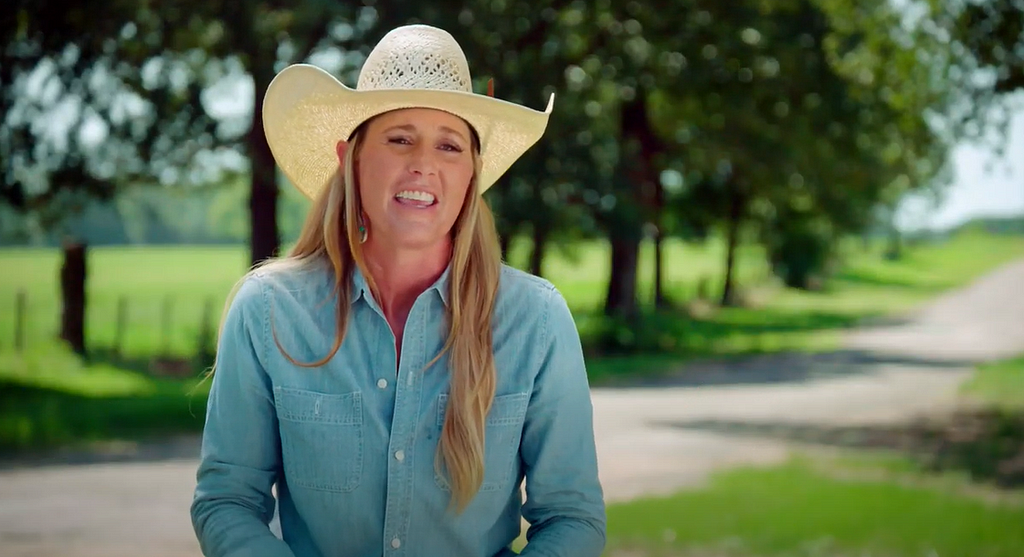
Can you share 3 of the best words of advice you’ve gotten along your journey? Please give a story or example for each.
I have received a lot of great advice over the years, so it’s hard to just pick three. However, I would say the number one on my list came from both of my parents. They taught me to “ride a good horse and always give it the best of care.” Without a horse, you have no cowboy. I have been privileged in my life to own, train, and ride some exceptional horses, and those horses make my job easier and bring joy to my life.
The second piece of advice is to “never ask an employee to do a job you wouldn’t do yourself.” The cowboys I work with are very much like family, and they all want to see each other succeed. When you are willing to get in the trenches with the crew that works for you it helps gain their respect, and they are willing to work hard for your business and be trustworthy.
The last piece of advice is to “always stand up for your beliefs but be respectful of those whose views might be different.” By always showing everyone the same respect, you will get that kind of respect back. We aren’t always going to agree on everything, but we can always disagree in a respectful way.
We are sure you aren’t done. How are you going to shake things up next?
I am always thinking big and looking for ways to grow not only my cattle business but the entire cattle industry. You never know what doors might open if you are willing to think outside of the box and work hard for what you believe in. One of my current goals is to further educate the general public about the agricultural industry and possibly squash some misconceptions.
In your opinion, what are the biggest challenges faced by ‘women disruptors’ that aren’t typically faced by their male counterparts?
Somedays it is tough to be a woman in a male-dominated line of work. I have to really prove myself to get the respect most men would get just off of their resume. From a young age, my parents told me that I could do anything I wanted to do, if I just set my mind to it and worked hard.
However, there are a lot of men out there that see a girl as a boss and snicker under their breath. Those same men would never do that towards a male boss; they would just take his direction. In my position, I really have to be firm in order to get my point across. At this point in my life, I don’t allow it to get under my skin. I know I’m good at my job, and I have earned the respect of top cowboys in this business.
Do you have a book/podcast/talk that’s had a deep impact on your thinking? Can you share a story with us?
I follow Fallon Taylor on social media and regularly listen to her podcast. She’s not only a world champion barrel racer, but she is also a world champion positive thinker. Fallon has really impacted the world of barrel racing in a great way, but she’s had a lot of haters on her journey. No matter what has been thrown her way, I admire the fact that she held her head up high. She always stays positive and takes the high road at every turn thrown in her direction. My life is a lot different than Fallon’s, but I can always get behind and support a woman who has accomplished what she has in her life.
You are a person of great influence. If you could inspire a movement that would bring the most amount of good to the most amount of people, what would that be? You never know what your idea can trigger. 🙂
I hope to inspire women and little girls everywhere in all walks of life to just go for it. No matter how unattainable your dream might feel at times, be strong and don’t be afraid to work for what you want. So often we see women being really hard on other women, I want to see more women cheering each other on and supporting the efforts of women everywhere.
Can you please give us your favorite “Life Lesson Quote”? Can you share how that was relevant to you in your life?
Don’t be afraid to go after what you want out of fear you might fail. We are all imperfect. We all make mistakes and have failures in our life’s journey. Try not to let those failures define you. When something doesn’t turn out the way you wanted, stay positive; get back up; dust yourself off and get right back on that horse.
How can our readers follow you online?
Readers can follow me on Instagram: @jennleehudgins or on Facebook: @OfficalJennHudgins.
Female Disruptors: Jennifer Hudgins of Ultimate Cowboy Showdown, On The Three Things You Need To… was originally published in Authority Magazine on Medium, where people are continuing the conversation by highlighting and responding to this story.


